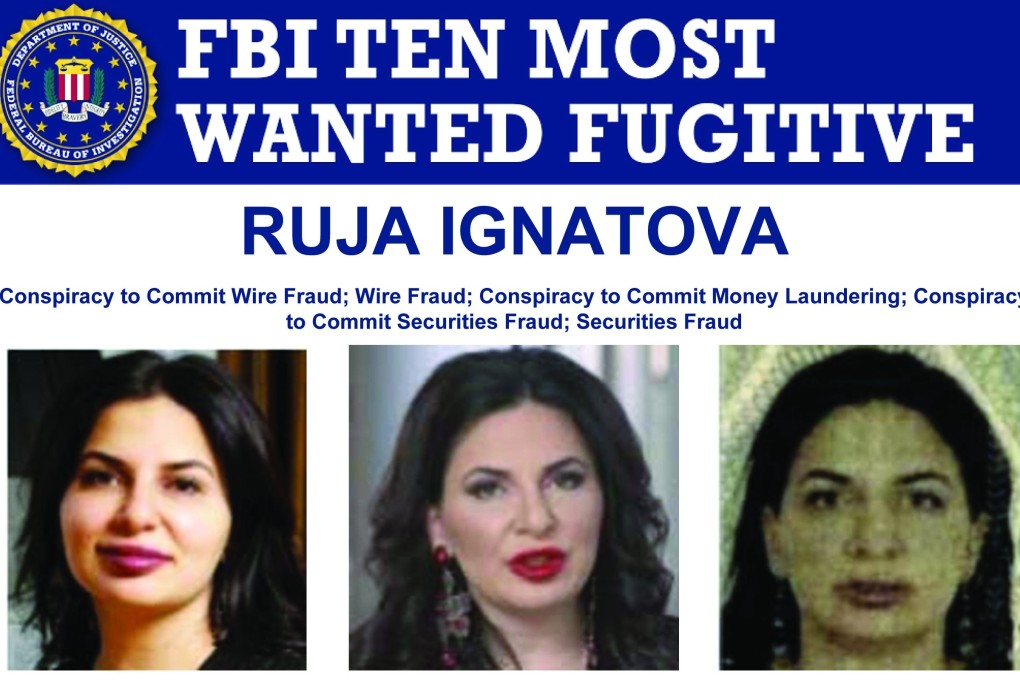‘Cryptoqueen’ Ruja Ignatova added to FBI’s most wanted list, but she was already notorious in China
- The 42-year-old fugitive vanished from public view in 2017, when US officials first signed an arrest warrant for her
- In China, Ruja Ignatova is accused of masterminding a fraudulent scheme – also based around OneCoin – that involved around 15 billion yuan (US$2.24 billion)

Ruja Ignatova, the missing self-described “Cryptoqueen” who has been added to the US Federal Bureau of Investigation’s Ten Most Wanted Fugitives list, is also known for allegedly engineering a Ponzi scheme in China, making the elusive figure a rare target for law enforcement authorities in both Beijing and Washington.
Bulgarian-born Ignatova, who created a cryptocurrency scheme called OneCoin that raked in almost US$4 billion after launch in 2014, was added to the most wanted list by the FBI last week for “alleged leadership of a massive fraud scheme that affected millions of investors worldwide”, according to the bureau’s website. It has offered a reward of up to US$100,000 for relevant information regarding Ignatova.
The 42-year-old fugitive vanished from public view in 2017, when US officials first signed an arrest warrant for her. Ignatova had touted OneCoin as a “Bitcoin killer”.
In China, Ignatova is accused of masterminding a fraudulent investment scheme – also based around OneCoin – that involved around 15 billion yuan (US$2.24 billion), which led to as many as 98 people being charged.
Back in 2017, at least 35 people in China joined the OneCoin scheme through online platforms or referrals and made illegal profits by cultivating new members, according to a filing by the Zhuzhou County People’s Court in Hunan Province.
Each of the defendants received prison sentences of up to seven years and fines of up to 5 million yuan (US$750,000) each, although 1.7 billion yuan (US$254 million) of lost investments was recovered by the police, according to court documents.